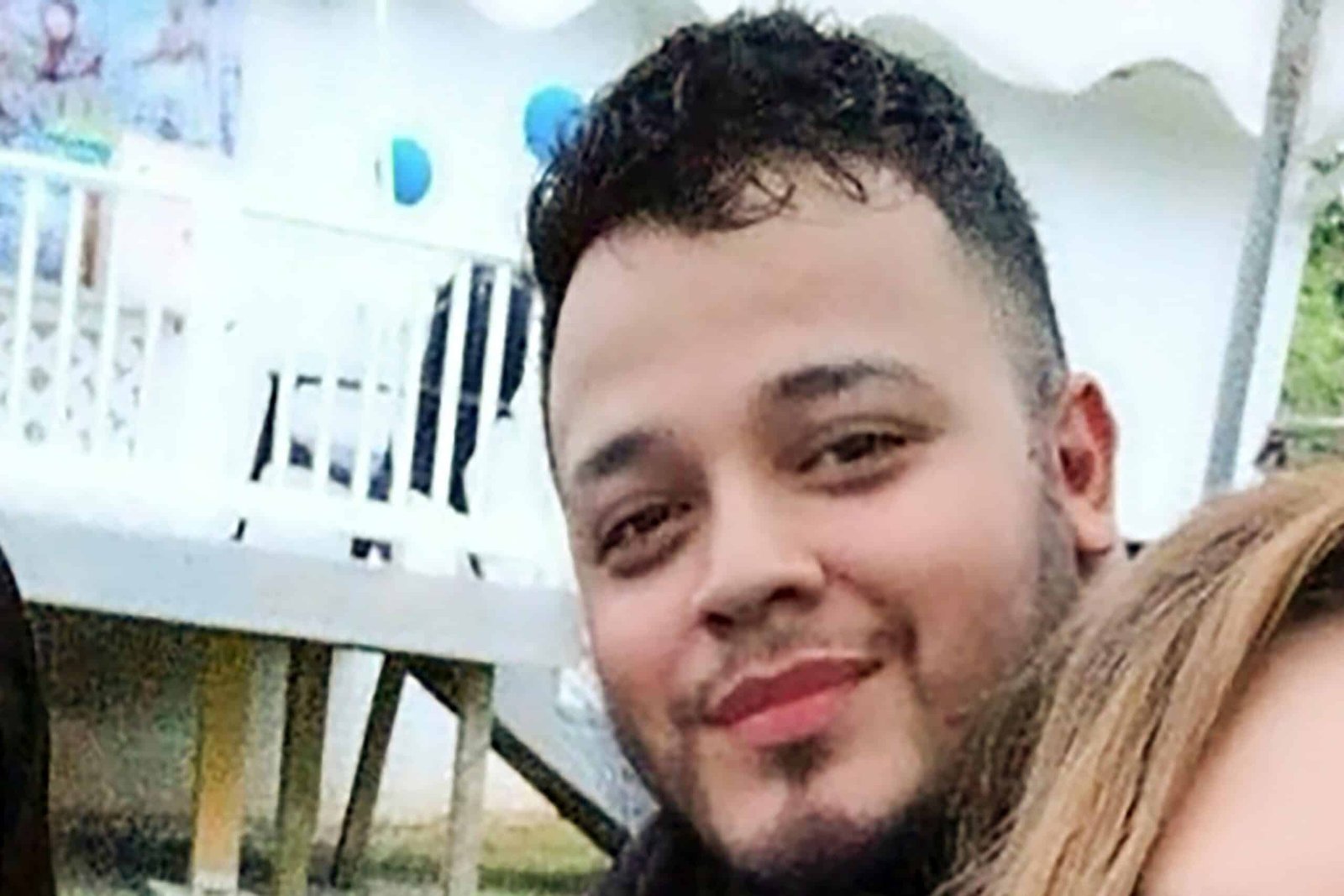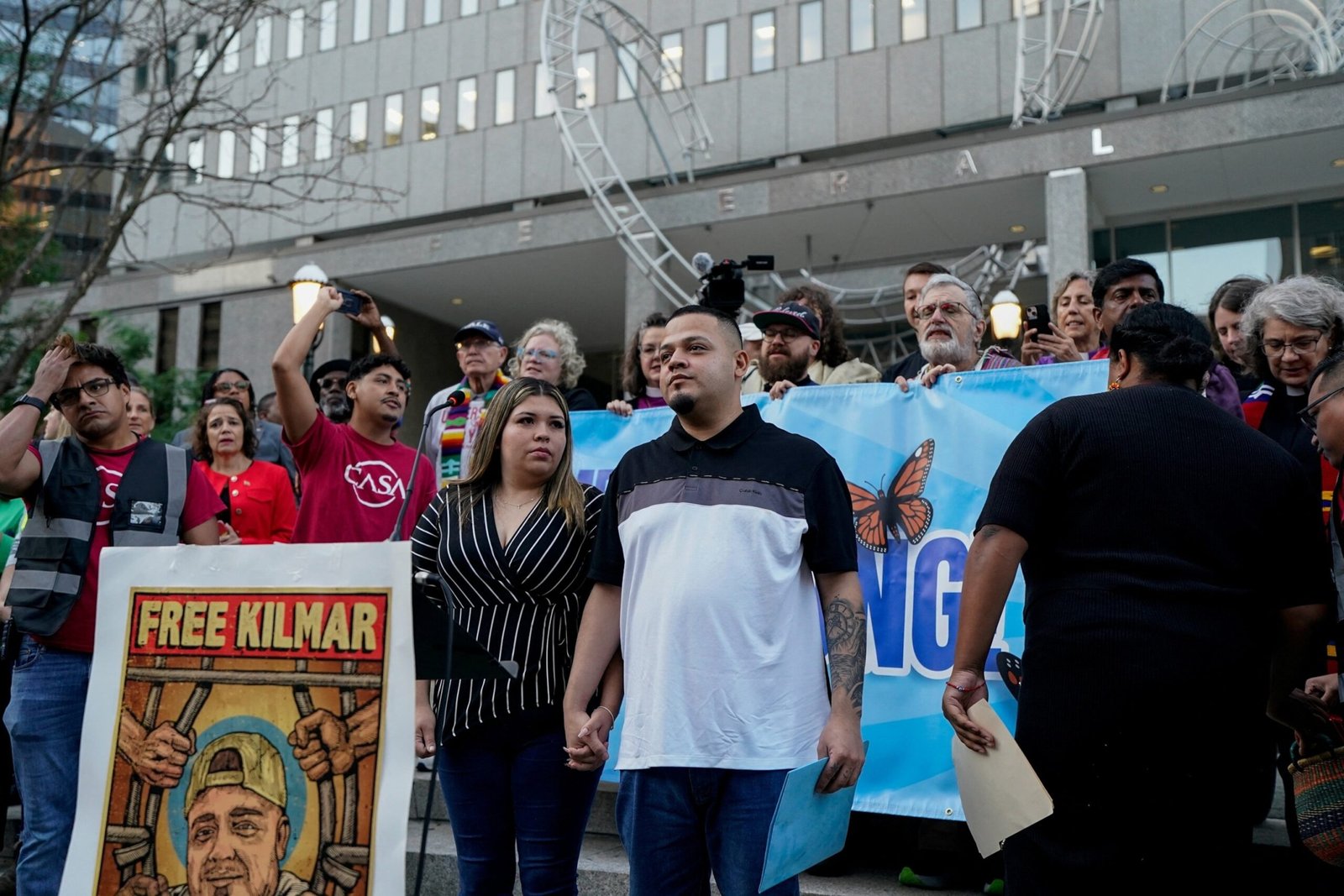Kilmar Abrego García was subjected to a severe abuse that includes “beatings, severe deprivation, inappropriate nutrition and psychological torture” upon his arrival in March to Cecot, the notorious mega prison in El Salvador, according to a recently amended complaint of its legislators.
The details occurred in a presentation of Abrego García’s lawyers made Wednesday in their effort to convince the American district judge of Maryland, Paula Xinis, to block their deportation while waiting for the trial for human smuggling charges in Tennessee.
Among the details that his lawyers sought to include in his original complaint was his client’s story about his arrest in March, his arrest in the United States and his time in El Salvador, where he was sent despite a 2019 court order that prohibits deportation to that country due to the fear of persecution, after the Trump administration said he was a member of the Gang MS-13 gang of 2019, which he has considered.
Abrego García, according to Wednesday’s presentation, repeatedly informed the officials of the moment he was arrested that “he was never a member of a gang” and that he had legal permission to remain and work in the United States.
When Abrego García and his detained companions arrived in Cecot, a prison official said: “Welcome to Cecot. Who enters here does not leave,” according to the presentation. Upon arrival, Abrego Garcia was “pushed into a bus, sitting by force, and equipped with a second set of chains and wives. The officers hit him repeatedly when he tried to lift his head,” the presentation said.
“The plaintiff Abrego García was forced to undress, broadcast prison clothes and subjected to physical abuse, including being kicked on his legs with boots and hit in the head and arms to make him change clothes faster,” said his lawyers.
Abrego García had bruises and visible packages throughout the body, according to the presentation. He and other Salvadorans were forced to kneel for nine hours, “with guards hitting anyone who fell out of exhaustion.”

The photo provided by Murray Osorio PLLC shows Kilmar Abrego García.
MURRAY OSORIO PLLC VIA AP
“The detainees were limited to metal literas without mattresses in a superpobiled cell without windows, bright lights that remained 24 hours a day and minimum access to sanitation,” their lawyers wrote.
In the complaint amended proposal, Abrego García’s lawyers claim that the Salvadoran authorities “recognized” that Abrego García was not affiliated with any gang, and separated him and another 20 Salvadorans placing them in a separate cell a week after reaching prison.
The presentation says that Abrego García lost 31 pounds during his first two weeks in Cecot.
Then, on April 10, Abrego García was transferred to a prison center in Santa Ana, El Salvador, where he was “frequently hidden from visitors,” according to the presentation.
Abrego García was taken back to the United States last month to face charges in Tennessee of supposedly transporting undocumented migrants within the United States while living in Maryland. He declared himself innocent.
Federal prosecutors in Tennessee have indicated their intention to deport Abrego García to a third country if the magistrate judge who supervises his criminal case releases him on bail while waiting for the trial. His lawyers have asked Judge Xinis to order the transfer of Abrego García to Maryland and blocks his removal from the United States without first providing his lawyers.
“The defendants have repeatedly declared their intention to take Mr. Abrego García to a third country,” their lawyers said Wednesday. “Abrego García could face persecution or torture if other countries are directly eliminated, including, among others, countries with famous human rights abuses such as Libya, South Sudan and Eritrea.
“Without knowing which countries of the countries they intend to try to eliminate it, Abrego García cannot prepare or submit a protection application,” said their lawyers.




